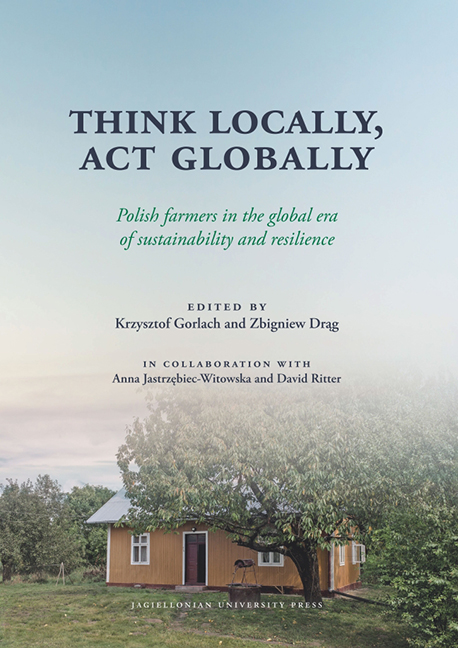Book contents
- Frontmatter
- Contents
- Family Farming: A foreword
- An Introductory Letter from the First Editor: Where the horses, cows, and even cats had their own names
- Part One Theoretical and Methodological Considerations
- Part Two Changes in the Post-Communist Transformation
- Part Three Diversification of Farmers’ Strategies
- Part Four Some Independent Studies
- Conclusion: Some Final Remarks from the First Editor
- Afterword: Renewing a Sociology of Agriculture
- Biograms
Conclusion: Some Final Remarks from the First Editor
Published online by Cambridge University Press: 16 July 2022
- Frontmatter
- Contents
- Family Farming: A foreword
- An Introductory Letter from the First Editor: Where the horses, cows, and even cats had their own names
- Part One Theoretical and Methodological Considerations
- Part Two Changes in the Post-Communist Transformation
- Part Three Diversification of Farmers’ Strategies
- Part Four Some Independent Studies
- Conclusion: Some Final Remarks from the First Editor
- Afterword: Renewing a Sociology of Agriculture
- Biograms
Summary
The reflection of this final part of the monograph should not be seen as its summary or set of consistent conclusions. Neither is it an attempt to draw a portrait of Polish farmers in 2017 at the time, when the empirical survey was conducted, which served as groundwork for the entire project. This final part contains the set of remarks related to the surveyed population, as well as covers other issues connected foremost with methodology of conducted studies.
The monograph does not have a homogenous character. It is not the monograph of a single author, prepared by the head of the project. Quite to the contrary, it is an attempt to write in several different voices and present a contemporary, albeit still incomplete, depiction of Polish farmers. Such a character for the monograph was announced in the first chapter, which is a thorough presentation of a theoretically analytical concept that was the result of a group debate. Quite wide frames for the analysis of farmers’ situation in Poland, presented in this concept, concentrated on global development matters and ideas of sustainability and resilience. These very issues are also widely discussed in the international subject literature and mark their presence in numerous studies conducted in various places of the world.
The processes and phenomena described in this monograph are quite complex and multidimensional. This goes well with having a diversity of approaches due to the individual and joint work of members of the research team, whether directly employed in the project or having loose ties to it and collaborating in it in a more flexible way. Thanks to their engagement, the analyses of selected topics, resulting in a rather discerning picture of the world of Polish farmers, elaborated from their own vantage points, can be found in this monograph. As this complex picture was created with the use of various research methods it could be metaphorically compared to a painting created simultaneously by various artists using various techniques of applying paints and having different methods for depicting the lights and shadows of sketched objects, as well as different color preferences.
Due to the characteristics of the research matter presented above, as well as the specifics of the study, the structure of this volume also has a diverse character. The first part contains reflections on the analytical, theoretical, and methodological characteristics of the matter.
- Type
- Chapter
- Information
- Think Locally, Act GloballyPolish farmers in the global era of sustainability and resilience, pp. 679 - 690Publisher: Jagiellonian University PressPrint publication year: 2021



